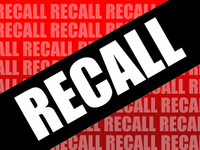FCA US Reaches Consensual Resolution of NHTSA Investigation on 23 Recall Campaigns
 |
LONDON -- July 26, 20145: FCA US LLC (FCA US) today announced it has entered into a consent order with the National Highway Traffic Safety Administration (NHTSA) which resolves the issues raised by NHTSA with respect to FCA US’s execution of 23 recall campaigns in NHTSA’s Special Order issued to FCA US on May 22, 2015 and further addressed at a NHTSA public hearing held on July 2, 2015.
The consent order includes an admission by FCA US that in three specified campaigns it had failed to timely provide an effective remedy, and that it did not timely comply with various reporting requirements under the National Traffic and Motor Vehicle Safety Act of 1966. Pursuant to the consent order, FCA US has agreed to make a $70 million cash payment to NHTSA and to spend $20 million on industry and consumer outreach activities and incentives to enhance certain recall and service campaign completion rates. An additional $15 million payment will be payable by FCA US if it fails to comply with certain terms of the consent order. FCA US has also agreed to undertake specific actions to improve its recall execution. The consent order will be supervised by an independent monitor and will remain in place for three years subject to NHTSA’s right to extend for an additional year in the event of FCA US' noncompliance with the consent order.
FCA US Statement: FCA US LLC acknowledges the admissions in its Consent Order with the National Highway Traffic Safety Administration. We also accept the resulting consequences with renewed resolve to improve our handling of recalls and re-establish the trust our customers place in us. We are intent on rebuilding our relationship with NHTSA and we embrace the role of public safety advocate. Accordingly, FCA US has agreed to address certain industry objectives, such as identifying best practices for recall execution and researching obstacles that discourage consumers from responding to recall notices.


